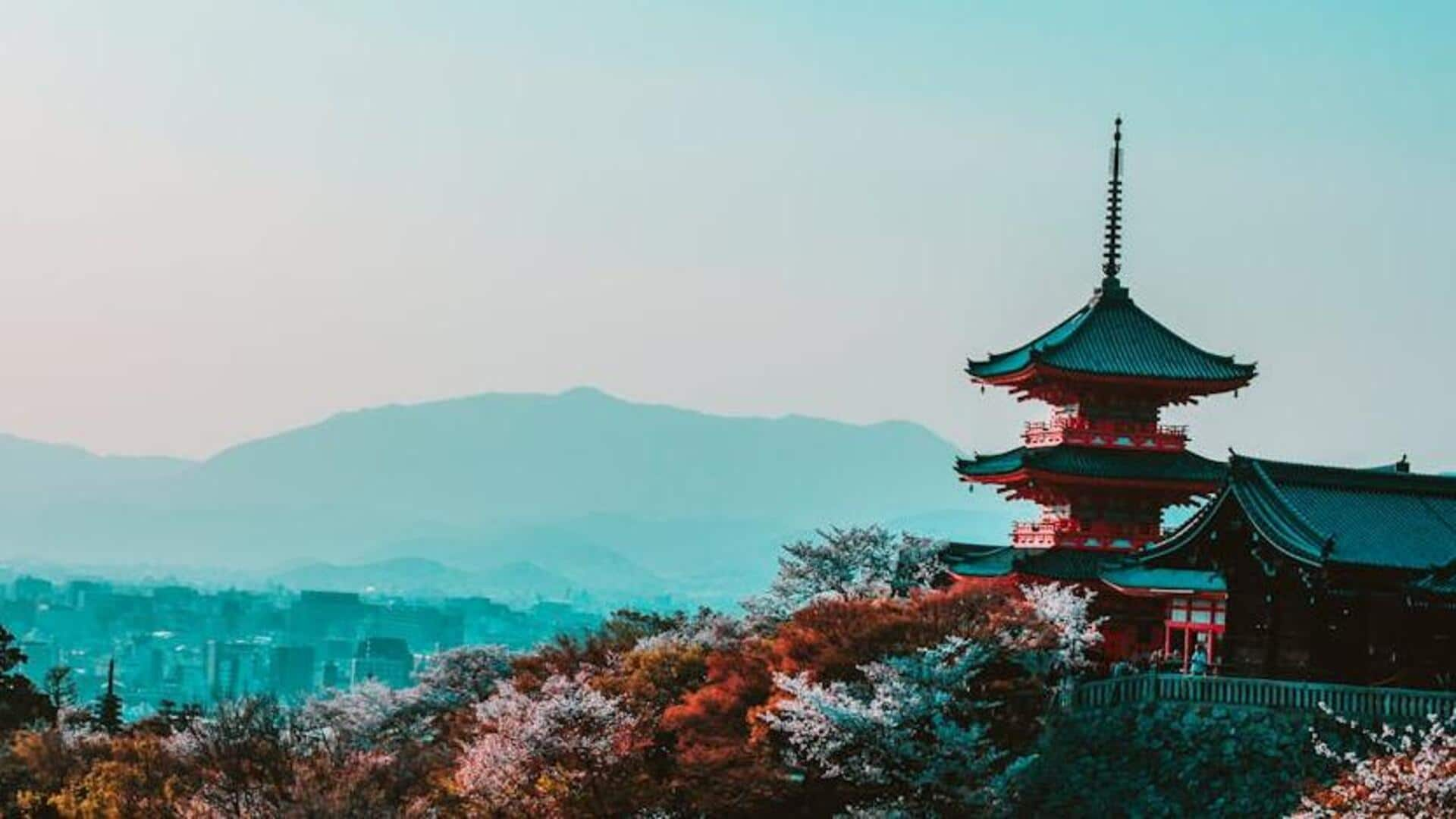
Explore Kyoto's samurai legacy with this travel guide
What's the story
Kyoto, the ancient capital of Japan, is deeply rooted in samurai heritage. As the historical epicenter of Japan's elite warriors, it provides a unique opportunity for travelers to immerse themselves in an era when samurai were the city's stalwarts. With its impeccably maintained castles, tranquil gardens, and authentic dojos, Kyoto extends an invitation to discover the enduring legacy of bushido—the samurai code of honor.
Recommendation 1
Walk the halls of Nijo Castle
Nijo Castle, a symbol of the Tokugawa shogunate's might, welcomes visitors to explore its history. Within its walls, one can wander through rooms adorned with intricate designs and walk in vast gardens that showcase traditional landscaping. Its famed nightingale floors, engineered to emit sounds with each step, served as an ingenious security measure against stealthy intruders during Japan's Edo period.
Recommendation 2
Train at a traditional dojo
In the heart of Kyoto, numerous dojos welcome travelers to delve into samurai culture with practical lessons. Participate in a kendo or iaido class, the two traditional martial arts that focus on swordsmanship. These beginner classes are designed to provide a glimpse into the discipline and precision necessary to master these time-honored techniques, offering a hands-on approach to understanding the samurai way.
Recommendation 3
Explore samurai history at Kyoto museums
Immerse yourself in samurai lore at Kyoto's museums. The Kyoto Samurai & Ninja Museum offers a dynamic experience with its interactive exhibits and live demonstrations, bringing the warrior culture to life. For enthusiasts of samurai gear, the War Memorial Museum of Kyoto is a treasure trove, displaying an extensive collection of authentic armor and weapons. This allows visitors to experience an intimate view of these historical pieces.
Recommendation 4
Reflect in Ryoanji's Zen gardens
Ryoanji Temple is celebrated for its distinguished rock garden, a space of serenity perfect for contemplation. The stones, thoughtfully arranged, rest on combed gravel, inviting visitors to ponder the virtues of simplicity and tranquility. These principles, cherished by samurai for fostering mental clarity, are palpable here. The garden is a physical manifestation of the quietude and discipline central to samurai life.